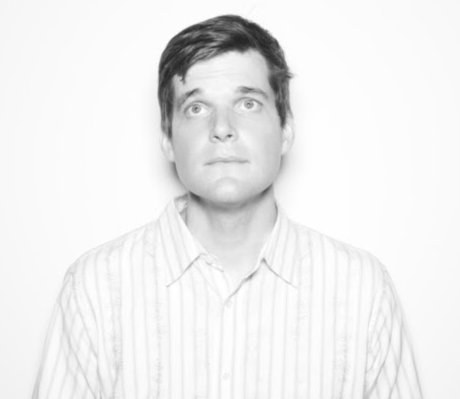Like many fans of underground music in 2015, there came a day when Phoebe Bridgers could hardly go anywhere without being instructed to check out an artist named Julien Baker, whose searing and confessional debut Sprained Ankle was earning raves.
Bridgers is also an artist whose work has been called confessional and has earned raves, and she’s so confessional that she confesses that, at first, she was reluctant to give Ankle a spin. She has her reasons.
"I had a big aversion to even listening to her record, because people kept sending it to me, being like, ’Hey, this girl sounds exactly like you,’ or, ’Oh, my God, it’s another sad female singer-songwriter,’ and it’s such a pet peeve of mine, and it was all men doing that," Bridgers says. "I was not listening to it for an entire week, even though five different people sent it to me.
"And then I finally listened to it, and of course it destroyed me."
Baker later discovered Bridgers’ music through Soundcloud and invited her on tour, “which was just magical to watch," Bridgers recalls. “She was playing in clubs, but silencing them and being completely alone on stage.”
Along the way Baker and Bridgers became close friends, bonding over their shared annoyance at the critic and fan tendency to lump all female artists together, and how Bridgers’ own 2015 debut album Killer earned blurbs like “like ’Phoebe Bridgers, the new Julien Baker,’ or something, where you’re like, ’What? Julien is 23 years old. What do you mean the new? Why can’t we all exist in the same space?,’” Bridgers says. “Sure, I’m all for promoting women, but we’re not a genre. We’ve been pitted against each other or ourselves in very small, subtle ways.”
It’s not that Bridgers inherently dislikes it when well-meaning friends recommend female artists, there’s just the right way to do it and the wrong way.
An example of the right way was when Baker later introduced her to the songwriter Lucy Dacus, whose 2016 debut No Burden earned raves for its witty take on Americana-influenced rock. Both Baker and Dacus would both eventually sign to indie-rock powerhouse Matador Records and tour Europe together, but before all that, we played a show together in D.C. That’s also the same night that Matador found out about me, because they were there scouting her and they ended up signing me as well,” Dacus remembers. “It was just one of those nights where a lot of things happened that have remained important in my life. I look back on that night fondly.”
The three artists all eventually became fans and close friends, and all eventually released acclaimed, leveling-up second albums, from Baker’s 2017 Matador debut Turn Out the Lights and Dacus’ Matador bow Historian, which came out earlier this year, to 2017’s Stranger in the Alps, Bridgers’ debut for the respected indie Dead Ocean.
The three are all close in age (Dacus and Baker are 23, Bridgers is 24), and Dacus and Baker in particular bonded because they are both members of the LGBTQ community and both grew up religious in Southern towns: Baker in Memphis, Tennessee, and Dacus in Richmond, Virginia.
“I don’t really call myself a Christian these days. I read a lot and I think a lot, but I don’t feel comfortable having a title on my religious beliefs,” Dacus explains, “but Julien is practicing and we can understand each other well in that context because I think we both were raised with similar goals and fears and understandings, and it’s nice to have had that shared past.”
Eventually, the three of them decided to tour together, and an attendant phone text chain was born, one mostly devoted to “DIY memes” and encouragement, Dacus says. “When one of us has a bad day, we’ll just let the others know. Even just the expression of ‘today sucks’ is helpful no matter what,” she says. “It’s a queer-culture thing to say that you feel seen and heard by somebody. We were almost going to name the album Seen and Heard.”
About that album: Originally, Bridgers recommended that three of them record a single or two, pushing for a Carter Family cover. Instead, the three of them embarked to Sound City Studios in Los Angeles, where Bridgers lives. They each took a completed song and one they were working on, and together the three artists cut the boygenius EP in four days.
And thus, a supergroup was born.
“I’ve never worked that fast in my life. For my song, we literally wrote it in 20 minutes because we all were on the same page,” Baker says. She thinks that working with other artists allowed all three of them to step out of their usual boundaries and try new things. Dacus comes from more of an twangy tradition, while Bridgers and Baker came up playing in punk bands, but all three say they were able to stretch out on the EP. “I got to play banjo and mandolin on our record, which I haven’t done in years,” Bakers says. “Also poetically, I think the way that each of them approaches writing words is challenging for me. We would be working on a line together or something, and Lucy would say, ‘What if you said this word instead of that word, because then there’s internal rhyme, or then there’s a slant rhyme on this particular couplet?’”
The resulting EP covers a lot of ground, from haunting, three-part harmony ballads like “Me & My Dog” to the slow-building catharsis of “Stay Down,” which finds Baker’s signature spectral melodies buttressed by fuller arrangements.
The three artists self-produced the EP, and brought in bassist Anna Butterss and drummer Beth Goodfellow to help out. “We all wanted to dabble in each other’s strengths, so that lends itself to a super awesome creative environment of just, ‘Sure, let’s try that,’ or trying dad rock guitar solos and screaming harmonies,” Bridgers says. “Normally Julien, it’s mostly her and her guitar pedals. Lucy, it’s a band. Me, it’s five days in the studio, experimenting with sounds. And they went on that ride with me."
Dacus adds that “Julian had the idea a long time ago of being in a band where she wasn’t the lead singer, because she is a wicked guitarist. And there are a couple of songs on the record where she’s not singing, she’s just ripping and solo. Like at the end of ‘Salt in the Wound’ she’s playing this almost grotesquely classic-rock solo while Phoebe and I are harmonizing and screaming.”
When told that said solo is both surprising and one of the highlights of the EP, Baker replies, “I wish you could see me right now. I look comically proud. It’s like a Guns N’ Roses stupid little sweep,” she says. “Another thing I realized about this project is that I think when I am only a portion of the ownership of the music and it’s this collaborative corporate thing, I’m so much more inclined to be forthright with my pride, to just say, ‘This is awesome, this thing that we all made together. I can’t believe how good that sounds.’ I would never say or maybe even feel that way about my own music.”
The three artists will embark on a tour together this fall, which will see all them play separate sets, and then encore with boygenius songs. (The trio are also already making plans for the Thanksgiving they’ll spend together.) It’s not lost on any of them that working together comes across as an act of solidarity.
Even in the wake of the #MeToo movement, 2018 has been a terrible year for women, from the nomination of accused sexual offender Brett Kavanaugh to the Supreme Court to the Republican Party’s ongoing efforts to chip away at a woman’s right to choose to the free-flowing misogyny many women experience every time they go online. In such a time, a supergroup featuring three self-assured women can’t help but feel like a political act.
“I would like to think that there’s an implicit statement made by the fact that the record is written by women, produced by women, and all of the performers are women,” Baker says. “There’s an epidemic of women being minimized and having to make themselves smaller and learning a reflex of self-effacement to deal with a culture in where particularly white men are permitted to take up all of the space. So I would like to think that one of the most important things about this project is being overt and explicit in the fact that it was an enterprise accomplished by women, just for the importance of modeling that for other women.” (It’s worth noting that the EP’s cover is an intentional wink at the cover of Crosby, Stills and Nash, the debut album from one of rock’s first supergroups.)
The pitting of female artists against each other or treating women as a genre unto itself is something boygenius is intended as a direct response to, Baker thinks. “There’s an interview that we did where somebody asked, ’What do you think about the competitive nature of women in music?’ and I thought, ’I would hope that this project would be its own answer to that question, that the fact that we chose to run towards each other instead of run all against each other and to try to make something that could be shared instead of something that was competitive would also model the way we should go about everything. Not just creativity, but activism and tenacity in other venues of life or in other professions.’”
Even the project’s name is a knowing wink at lazy sexist assumptions about music. “It started off as a joke and then a genuine frustration, and then a real tool. We were talking about men in our lives who’ve been told that they were geniuses since they were born, essentially, and the freedom that has allowed them as creative people to be more innovative and willing to explore. They’re also people who are told they’re geniuses and they write the same song over and over and it’s just crappy." Dacus says. "We were laughing about it and then getting angry about it. Like, ’why wasn’t that how we were raised?’ and then we realized, ’you know what, let’s just harness that energy."
All three artists have dealt with sexist assumptions in interviews, with Bridgers noting that “I can cite at least one or two interviews where we were all being interviewed together and journalists, maybe two questions in, realized that we’re angry as fuck about ways that we’ve been portrayed in the press, or ways we’ve been talked to, and then I can hear them deleting their next three questions,” she says. “It’s always really affirming and great. It feels good to have the power, where the ball is in our court and a conversation in our court." But they all know that sometimes interviews are worth putting up with some dumb questions.
Between harnessing male confidence, collecting quality memes and shattering ideas about female competitiveness, Dacus has one more goal for boygenius.
“I don’t know who’s going to read this,” she says, “but if there’s some 12-year-old girl trying to start a band, I just say, ‘Heck yes. More power to you. Please do that.’”
—The boygenius EP is available Nov. 9, via Matador Records.









